Women in rural areas play a key role in the rural economies of developing countries despite deeply entrenched gender inequalities and discrimination.
Women participate in crop production (in developing countries they produce between 60 and 80% of food) and care for livestock, and are responsible for providing sustenance for their families.
Rural women, including indigenous women, are key players in improving food security and eradicating poverty.
On the occasion of the International Women’s Day celebrated around the world on March 8, from Social Promotion Foundation we want to pay a tribute to all women, who are the real protagonists of development in our projects:
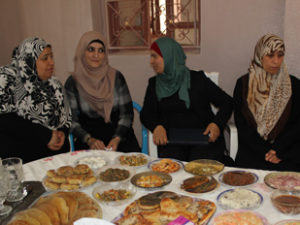
In Palestine, the Agreement “Sustainable and equitable rural development in the West Bank including the start and use of responsible management of land and water resources for small and medium farmers“, funded by AECID, in Tulkarem and Qalqilya (West Bank), is being implemented; which seeks to promote a model of sustainable rural development that respects the environment and that can be replicated in other locations and by other groupings of collectives.
The agreement promotes the empowerment of women in communities through their incorporation into the productive process with equity through the creation of cooperatives, improving their socioeconomic status and their business and institutional capacities through their incorporation into the productive process with equity.
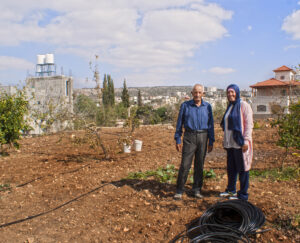
The project that Social Promotion Foundation funded by the City of Madrid develops in Salfit (West Bank) links access to water with food security and the empowerment of women. It includes the execution of training courses in urban gardens, in order to strengthen agricultural capacities. So far, 40 women have participated in the courses who have acquired knowledge about the care and preparation of the land, planting seedlings and seeds, irrigation methods adapted to places with water scarcity, use of fertilizers, pest control and diseases and post-harvest techniques to improve the quality of production. Subsequently, these women can benefit from the installation of an intelligent irrigation system in their gardens, and cultivate them with different trees and vegetables.
In Gaza, the project “Support for the generation of income and sustainable productive capacity of small producers in Gaza” (AECID) is being developed, which hopes to improve the livelihood of marginalized women by increasing their income capacity in a sustainable manner. To do this, it will improve its access to the market, its access to inputs and operations and its capabilities in both business management and technical issues.
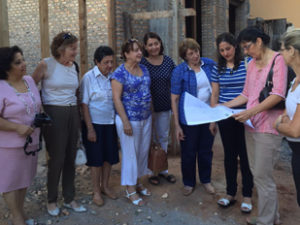 In Paraguay, with the help of the local partner ADEXTRA and with funding from OFID, the project “Improving socio-economic situation of the vulnerable women of Paraguay through education and professional training” is developed with the aim of building a new training center in Fernando de la Mora, which remedies the limited access that many young women have to train, in this area, due to the great distances they have to travel and the cost of transport.
In Paraguay, with the help of the local partner ADEXTRA and with funding from OFID, the project “Improving socio-economic situation of the vulnerable women of Paraguay through education and professional training” is developed with the aim of building a new training center in Fernando de la Mora, which remedies the limited access that many young women have to train, in this area, due to the great distances they have to travel and the cost of transport.
The school will offer the High School degree in Social Sciences to graduates with a specialty in gastronomy and management of micro and small businesses. Adult women will be given professional training and non-formal education in cooking and handicraft areas.
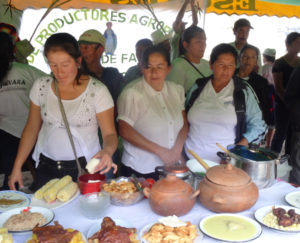
In Peru, the agricultural development project that the Social Promotion Foundation implements in the Microbasin of Guineamayo (Cajamarca) together with the Peasant School of Education and Health (ESCAES), financed by Obra Social “LaCaixa”, encourages the participation of women and young people to form new leaders of development in the communities, establishing spaces of interaction with the public and private actors of the territory.
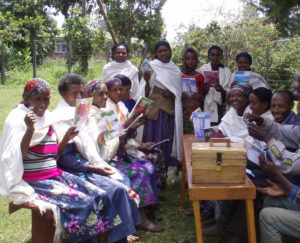
In Ethiopia, the project “Integrated rural development with an environmental and gender approach” is being developed in East Wellega (Oromiya). This project aims to be the continuation of another project initiated in 2014 that promoted the development in rural Ethiopia in the short, medium and long term, through the promotion of more efficient and effective agricultural techniques, the responsible use of land and balanced nutrition education.
The project incorporates a Democratic Governance approach, guaranteeing access to basic social services and rights and gender equality: the Office for Women, Children, and Youth will ensure that there is an equal participation of men and women (or at least 40% female). The project is financed by Generalitat Valenciana.

